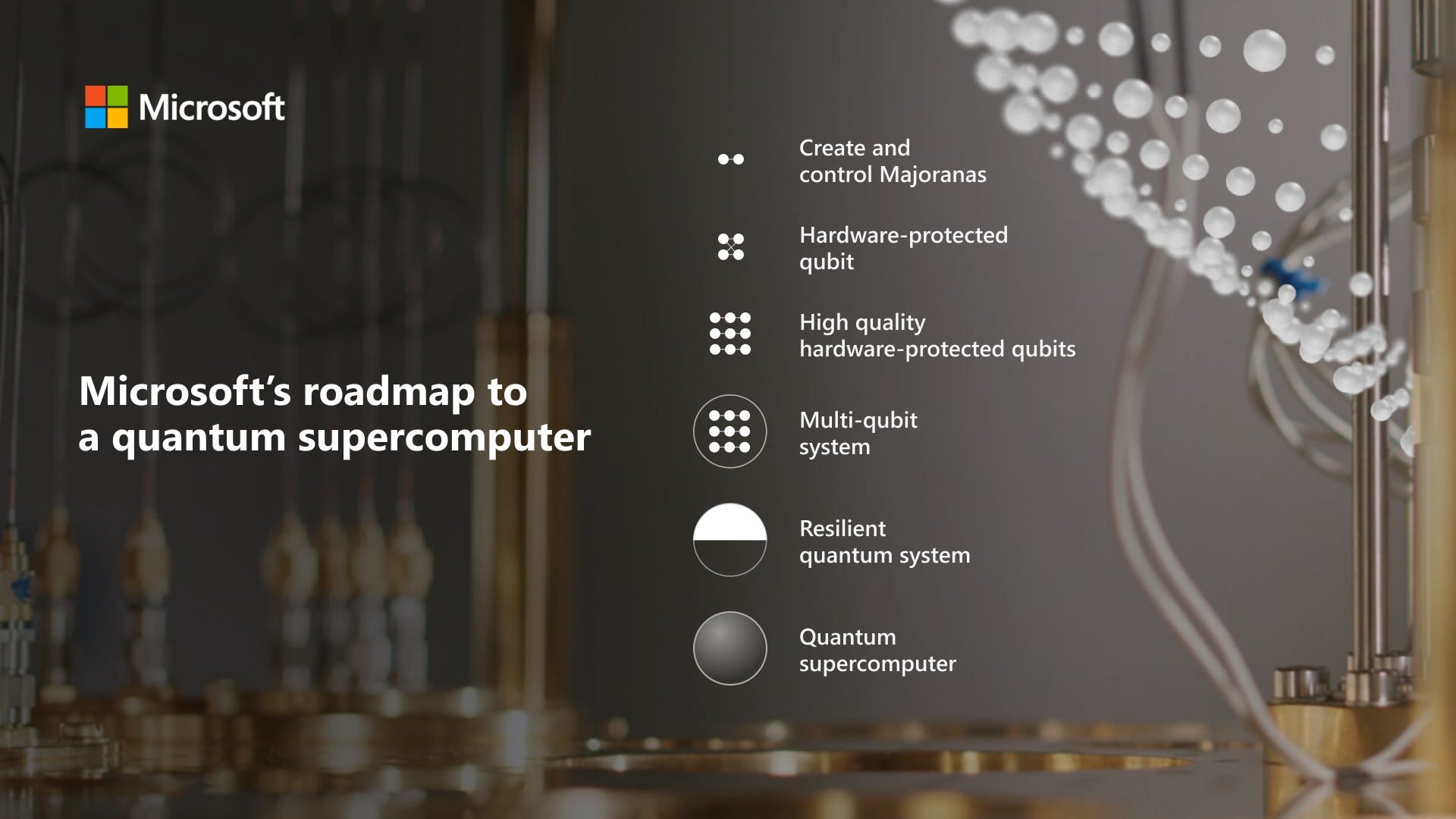Microsoft announces new advances in Azure Quantum to accelerate scientific discovery, including Azure Quantum Elements, Copilot in Azure Quantum, and a roadmap to a quantum supercomputer. Azure Quantum Elements integrates high-performance computing, artificial intelligence, and quantum computing to speed up chemistry simulations and reduce time to market for innovative products. Copilot in Azure Quantum helps scientists use natural language to reason through complex chemistry and materials science problems. Microsoft has achieved a breakthrough in creating and controlling Majorana quasiparticles, marking the first milestone towards a quantum supercomputer.
These advances will help industries like transportation, pharmaceuticals, and chemistry develop more efficient batteries, new drugs, and safer compounds for everyday products. Additionally, they will aid in addressing pressing societal challenges like climate change and food insecurity.
Azure Quantum Elements
Azure Quantum Elements is a new feature that integrates high-performance computing (HPC), artificial intelligence, and quantum computing. This integration allows scientists and product developers to accelerate their R&D pipeline, reduce costs, and quickly bring innovative products to market. Some customers have reported a six-month to one-week speed-up from project kick-off to solution. Azure Quantum Elements also enables researchers to dramatically increase the search space for new materials and speed up certain chemistry simulations by 500,000 times.
Copilot in Azure Quantum
Copilot in Azure Quantum is a tool that helps scientists use natural language to reason through complex chemistry and materials science problems. It can generate underlying calculations and simulations, query and visualize data, and provide guided answers to complicated concepts. Copilot also helps users learn about quantum computing and write code for today’s quantum computers. It offers a fully integrated, browser-based experience with a built-in code editor, quantum simulator, and seamless compilation.
Microsoft’s Roadmap to a Quantum Supercomputer
Microsoft is working towards building a quantum supercomputer, which will enable the accurate design of new chemicals and materials. The company has identified three levels of Quantum Computing Implementation: Level 1 – Foundational, Level 2 – Resilient, and Level 3 – Scale. To reach Scale, a fundamental physics breakthrough is required. Microsoft has achieved this breakthrough and presented the peer-reviewed data in a journal by the American Physical Society. This achievement marks the first milestone towards a quantum supercomputer.
Measuring Quantum Supercomputer Performance – rQOPS
To understand a quantum supercomputer’s performance, Microsoft proposes a new metric called reliable Quantum Operations Per Second (rQOPS). This metric measures how many reliable operations can be executed in one second, considering the full system performance rather than just qubit performance. The first quantum supercomputer will need at least 1 million rQOPS and will scale to more than 1 billion to solve impactful chemistry and materials science problems.
“Scientists and businesses will revolutionize the building blocks of everyday products to usher in a new era of innovation and economic growth. Together, we can compress the next 250 years of chemistry and materials science into the next 25.”
Quick Summary
Microsoft announces new advances in Azure Quantum, including Azure Quantum Elements, which integrates high-performance computing, AI, and quantum computing to accelerate scientific discovery. The company also reveals its roadmap towards developing a quantum supercomputer, capable of solving complex problems currently intractable for classical computers.
- Microsoft announces new advances to Azure Quantum to accelerate scientific discovery.
- Azure Quantum Elements integrates high-performance computing, artificial intelligence, and quantum computing to speed up R&D and bring products to market more quickly.
- The technology can increase the search space for new materials and speed up chemistry simulations by 500,000 times.
- Industry innovators such as BASF, AkzoNobel, AspenTech, Johnson Matthey, SCGC, and 1910 Genetics have adopted Azure Quantum Elements.
- Copilot in Azure Quantum helps scientists use natural language to reason through complex chemistry and materials science problems.
- Microsoft’s roadmap to a quantum supercomputer involves three levels: Foundational, Resilient, and Scale.
- The company has achieved the first milestone towards a quantum supercomputer by creating and controlling Majorana quasiparticles.
- Microsoft introduces the metric of reliable Quantum Operations Per Second (rQOPS) to measure a supercomputer’s performance.

